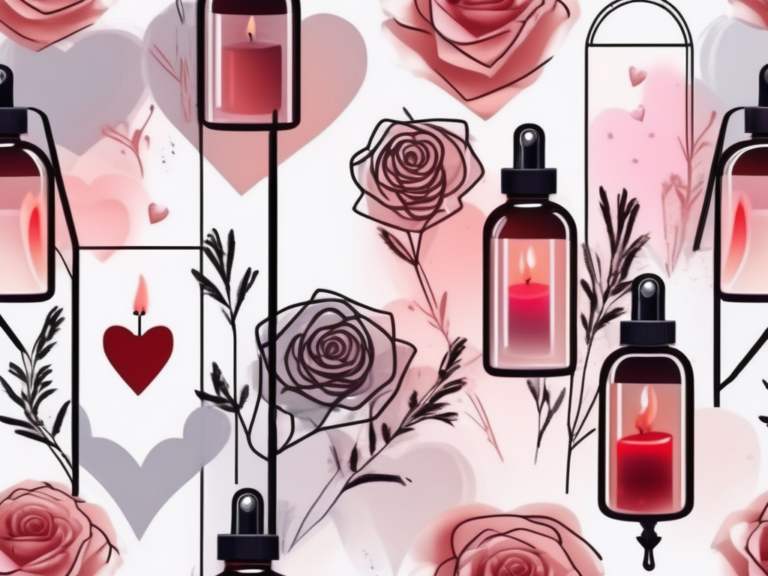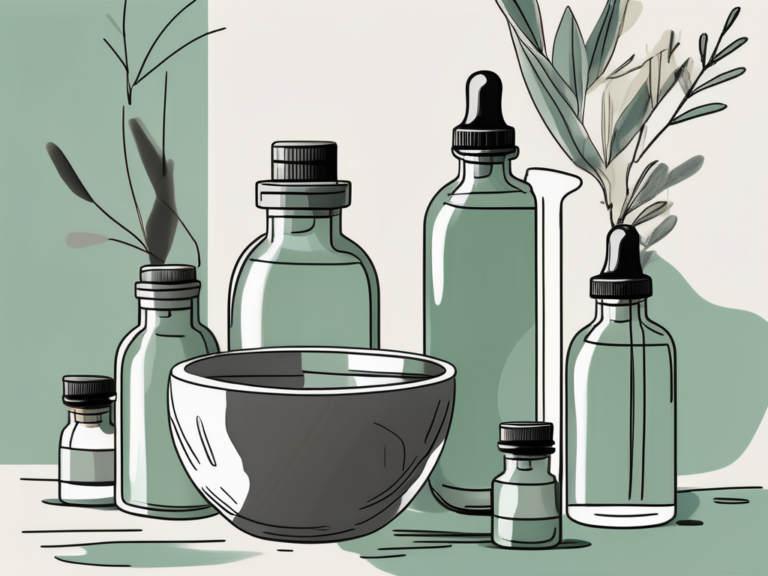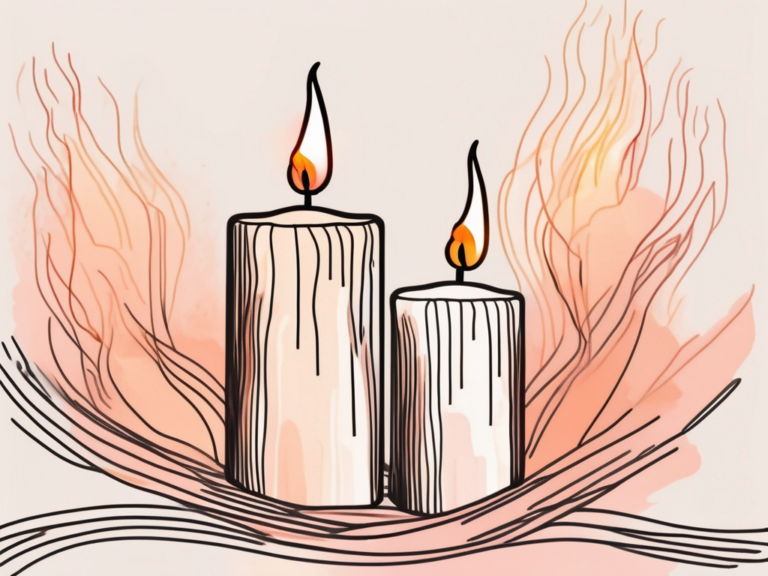Discover the Perfect Aromatherapy Diffuser Blends for Ultimate Relaxation
Are you looking for a natural way to unwind and relax after a long day? Look no further than aromatherapy diffuser blends. These powerful combinations of essential oils not only fill your space with delightful scents but also offer a myriad of benefits for your overall well-being. In this article, we’ll dive into the world of aromatherapy, explore the science behind it, learn about the different essential oils used, and discover how to create the perfect blends for ultimate relaxation.
Understanding Aromatherapy and Its Benefits
Before we delve into the specifics of aromatherapy diffuser blends, let’s first understand what aromatherapy is all about and the numerous advantages it brings. Aromatherapy is the practice of using essential oils to improve physical, mental, and emotional health. These oils are derived from various parts of plants and are known for their aromatic and therapeutic properties.
There is a growing body of scientific evidence that supports the effectiveness of aromatherapy in promoting relaxation, reducing stress, alleviating pain, improving sleep quality, and boosting mood. By harnessing the power of these natural extracts, you can create an oasis of tranquility in your own home.
The Science Behind Aromatherapy
At the core of aromatherapy lies the belief that certain scents can influence the limbic system, the part of the brain involved in emotions, memory, and behavior. When you inhale the aroma of essential oils, they travel through your olfactory system, stimulating the limbic system and triggering specific responses.
For example, the scent of lavender has been shown to promote relaxation and reduce anxiety levels. On the other hand, citrusy scents like lemon and sweet orange can help uplift your mood and increase energy. Each essential oil has its own unique composition, making it suitable for different purposes and effects.
Health and Wellness Advantages of Aromatherapy
In addition to its emotional benefits, aromatherapy has been found to support various aspects of physical health. Some essential oils possess antimicrobial properties, which can help fight off harmful bacteria and viruses. Others have anti-inflammatory properties that can aid in relieving pain and reducing inflammation.
Aromatherapy can also be beneficial for those dealing with respiratory issues. Certain essential oils, such as eucalyptus and peppermint, have expectorant properties that can help clear congestion and improve breathing. For those seeking relief from headaches or migraines, essential oils like peppermint and lavender have been known to provide a soothing effect.
Moreover, aromatherapy has been found to have positive effects on skin health. Essential oils like tea tree and lavender possess antibacterial properties that can help combat acne and promote a clearer complexion. Additionally, some essential oils have moisturizing properties that can hydrate and nourish the skin, leaving it soft and supple.
Overall, incorporating aromatherapy into your routine can contribute to your overall well-being, making it a wonderful addition to your self-care toolkit. Whether you are looking to unwind after a long day, boost your mood, or address specific health concerns, there is an essential oil blend out there that can cater to your needs.
Essential Oils: The Building Blocks of Aromatherapy
Now that we’ve explored the benefits of aromatherapy, let’s take a closer look at the essential oils used in creating these powerful diffuser blends. Essential oils are highly concentrated plant extracts that capture the essence, aroma, and therapeutic properties of the plant they are derived from.
When it comes to aromatherapy, there is a wide range of essential oils to choose from, each with its own unique properties and benefits. Here are some popular essential oils commonly used in diffuser blends:
The Role of Essential Oils in Aromatherapy
Essential oils are the heart and soul of aromatherapy. They are carefully selected for their specific properties and combined to create blends that target specific needs. Each essential oil has a unique scent profile and therapeutic benefits, making them valuable building blocks in crafting aromatherapy diffuser blends.
For example, if you’re aiming to create a calming and relaxing blend, you might choose lavender, chamomile, and bergamot essential oils. These oils are known for their soothing and stress-reducing properties. On the other hand, if you’re looking for an energizing blend to boost your mood and focus, you might opt for peppermint, rosemary, and lemon essential oils.
Most Popular Essential Oils and Their Properties
Let’s explore some of the most popular essential oils and the properties they bring to aromatherapy blends:
- Lavender: Known for its calming and relaxing properties, lavender is often used to promote sleep and reduce anxiety.
- Eucalyptus: With its refreshing and invigorating scent, eucalyptus is commonly used for respiratory support and relieving congestion.
- Peppermint: Peppermint essential oil has a cooling effect and can help alleviate headaches and improve focus.
- Tea Tree: Tea tree oil is well-known for its antimicrobial properties, making it a popular choice for combating germs and supporting skin health.
- Citrus Oils: Essential oils derived from citrus fruits such as lemon, orange, and grapefruit have uplifting and mood-boosting effects.
This is just a small sample of the vast array of essential oils available. Each oil brings its own unique properties, scents, and benefits to your aromatherapy blends.
When it comes to creating aromatherapy diffuser blends, it’s important to understand that the quality of the essential oils you use can greatly impact the effectiveness of the blend. High-quality, pure essential oils are extracted using methods that preserve the integrity of the plant’s natural compounds, ensuring that you get the full therapeutic benefits.
Additionally, it’s worth noting that essential oils can be classified into different categories based on their scent profiles. Some oils fall into the floral category, such as lavender and geranium, which have a sweet and delicate aroma. Others belong to the woody category, like cedarwood and sandalwood, which have a warm and grounding scent. There are also oils in the citrus category, such as lemon and grapefruit, which have a bright and uplifting fragrance.
Furthermore, it’s important to consider the safety precautions when using essential oils. While they offer many benefits, some oils can be irritating to the skin or cause sensitivities in certain individuals. It’s always recommended to dilute essential oils with a carrier oil before applying them topically and to perform a patch test to check for any adverse reactions.
Crafting the Perfect Aromatherapy Diffuser Blends
Now that you have a better understanding of essential oils, it’s time to dive into the art of blending them to create your perfect aromatherapy diffuser blends. Mixing different essential oils together allows you to create a personalized scent profile that suits your needs and preferences.
The Art of Blending Essential Oils
Creating a harmonious blend of essential oils requires a bit of experimentation and intuition. Start by selecting a few oils that complement each other and resonate with the desired effect you wish to achieve. For example, if you’re aiming for a blend that promotes relaxation, consider combining lavender, chamomile, and ylang-ylang.
When blending essential oils, it’s important to pay attention to the ratios. Some oils have a stronger aroma than others, so you’ll want to adjust the percentages accordingly. Start with a small amount of each oil and gradually increase or decrease based on your preference.
If you’re new to blending, it’s helpful to keep a journal or record of your experiments. This way, you can track the combinations you’ve tried and note the ones you liked best. Remember, creating the perfect blend is a personal journey, so don’t be afraid to get creative and trust your instincts.
Top Aromatherapy Diffuser Blends for Relaxation
To get you started on your aromatherapy journey, here are a few tried-and-true diffuser blends that are known for their relaxation properties:
- Lavender + Bergamot + Frankincense
- Chamomile + Clary Sage + Vetiver
- Neroli + Patchouli + Ylang-Ylang
Experiment with these blends and adjust them to suit your preferences. Remember, the key to finding your perfect blend is to trust your senses and let the scents transport you to a place of tranquility.
Now, let’s explore the benefits of each of these top aromatherapy diffuser blends for relaxation. Lavender, known for its calming properties, helps to reduce stress and promote a restful sleep. Bergamot, with its citrusy scent, uplifts the mood and relieves anxiety. Frankincense, often associated with spirituality, aids in deep relaxation and meditation.
Chamomile, a gentle and soothing oil, is widely used to promote relaxation and ease tension. Clary Sage, with its earthy aroma, helps to calm the mind and balance emotions. Vetiver, known for its grounding properties, brings a sense of stability and tranquility to the blend.
Neroli, derived from the blossoms of the bitter orange tree, has a sweet and floral scent that promotes relaxation and reduces nervous tension. Patchouli, with its rich and earthy aroma, helps to alleviate stress and anxiety. Ylang-Ylang, known for its exotic fragrance, uplifts the mood and promotes a sense of peace and harmony.
As you experiment with these blends, take note of how each combination makes you feel. Pay attention to the subtle nuances and the way they interact with your senses. Remember, the art of crafting the perfect aromatherapy diffuser blends is a journey of self-discovery and personal preference.
How to Use Aromatherapy Diffuser Blends for Relaxation
Now that you’ve crafted your ideal aromatherapy diffuser blend, it’s time to learn how to use it effectively to enhance relaxation in your daily life.
Setting Up Your Aromatherapy Diffuser
First, ensure that you have a high-quality aromatherapy diffuser. These devices are specifically designed to disperse essential oils into the air, allowing you to benefit from their therapeutic properties. Follow the manufacturer’s instructions to set up your diffuser and fill it with water.
Add a few drops of your custom blend or pre-made essential oil blend to the water. The number of drops will depend on the size of your diffuser and your personal preference. Start with a small amount, and if you desire a stronger scent, you can always add more.
Turn on your diffuser and let the soothing scent fill the air. Find a comfortable spot nearby and allow yourself to relax and unwind as the aroma envelops your senses.
Best Times and Places for Aromatherapy Relaxation
Aromatherapy can be enjoyed at any time of the day, depending on your personal preferences and needs. Here are a few suggested times and places to incorporate aromatherapy into your routine:
- Bedtime: Create a calming bedtime ritual by using your diffuser blend in the evening. The relaxing scents will help prepare your mind and body for a restful night’s sleep.
- Workspaces: Enhance focus and create a calm work environment by diffusing essential oils at your desk. Scents like lemon and rosemary can invigorate your mind and promote productivity.
- Bath Time: Transform your bath into a luxurious spa-like experience by adding a few drops of your chosen essential oil blend to the water. Allow yourself to unwind in the warm, soothing aroma.
- Meditation or Yoga: Create a serene atmosphere for your mindfulness practice by diffusing your favorite blend during meditation or yoga sessions. The scent can help deepen your relaxation and enhance your overall experience.
- Living Spaces: Infuse your living spaces with pleasant scents to create a welcoming and cozy atmosphere for yourself and guests. The versatility of aromatherapy diffuser blends allows you to adapt the scents based on the occasion or season.
Remember, the beauty of aromatherapy is that it can be tailored to your preferences and incorporated into your daily routine in a way that best suits your lifestyle.
Additionally, it’s important to note that the benefits of aromatherapy extend beyond relaxation. Different essential oils have unique properties that can address various concerns. For example, if you’re feeling stressed or anxious, lavender and chamomile essential oils are known for their calming effects. On the other hand, if you’re looking to boost your mood and energy levels, citrus scents like orange and grapefruit can provide a refreshing and uplifting experience.
Experimenting with different essential oil blends can be a fun and rewarding process. You can create your own unique combinations by blending different oils together or explore pre-made blends that are specifically formulated for relaxation. Don’t be afraid to get creative and trust your intuition when it comes to selecting scents that resonate with you.
Safety and Precautions When Using Aromatherapy Blends
While aromatherapy is generally safe and well-tolerated, it’s important to exercise caution and follow essential oil safety guidelines to ensure a positive experience.
Essential Oil Safety Guidelines
Here are some safety tips to keep in mind when using aromatherapy diffuser blends:
- Choose high-quality, pure essential oils from reputable sources to ensure their potency and safety.
- Dilute essential oils with a carrier oil, such as jojoba or sweet almond oil, before applying them directly to your skin.
- Perform a patch test before applying any essential oils topically to check for any adverse reactions.
- Avoid ingesting essential oils unless under the guidance of a qualified aromatherapist or healthcare professional.
- Keep essential oils out of reach of children and pets.
- If you have any underlying health conditions or are pregnant, consult with a healthcare professional before using essential oils.
By following these safety guidelines, you can enjoy the benefits of aromatherapy without any unnecessary risks.
Precautions to Take When Using Aromatherapy Blends
In addition to safety guidelines, there are a few precautions to consider when using aromatherapy diffuser blends:
- Avoid prolonged exposure to high concentrations of essential oils, as this can cause sensitization or irritation.
- If you have asthma or other respiratory conditions, be cautious when using essential oils that may trigger breathing difficulties.
- Be mindful of your pets’ sensitivities. Some essential oils can be harmful or toxic to animals, so it’s best to research pet-friendly options or diffuse oils in a separate area.
- Always follow manufacturer’s instructions for your specific diffuser model to ensure safe and proper usage.
By taking these precautions, you can relax and enjoy the benefits of your aromatherapy diffuser blends with peace of mind.
Furthermore, it’s worth noting that the quality of the essential oils you use can greatly impact your overall experience. Opting for high-quality, pure essential oils from reputable sources ensures that you are getting the full therapeutic benefits without any harmful additives or dilutions. These oils are carefully extracted from plants and contain the pure essence of their natural properties.
When it comes to diluting essential oils, using a carrier oil is essential. Carrier oils not only help to dilute the essential oils but also provide a protective barrier for your skin, preventing any potential irritation or sensitivity. Jojoba and sweet almond oil are popular choices due to their nourishing properties and compatibility with most skin types.
Performing a patch test is a simple yet crucial step in ensuring your safety. Apply a small amount of diluted essential oil to a small area of your skin and observe for any adverse reactions, such as redness, itching, or inflammation. This test allows you to identify any potential allergies or sensitivities before applying the oil to a larger area.
While essential oils can offer numerous benefits, it’s important to remember that not all oils are safe for ingestion. Ingesting essential oils should only be done under the guidance of a qualified aromatherapist or healthcare professional who can provide appropriate dosage and usage instructions. It’s always better to err on the side of caution and prioritize your well-being.
Lastly, keeping essential oils out of reach of children and pets is crucial. Children have more delicate systems, and certain essential oils can be toxic or irritating to them. Similarly, some oils can be harmful to pets, so it’s essential to research pet-friendly options or diffuse oils in a separate area where your furry friends cannot access them.
By being mindful of these additional details and taking the necessary precautions, you can create a safe and enjoyable aromatherapy experience for yourself and those around you. Remember, a little extra care goes a long way when it comes to harnessing the power of essential oils.
In Conclusion
Aromatherapy diffuser blends offer a natural and effective way to promote relaxation and enhance your well-being. By understanding the science behind aromatherapy, exploring the role of essential oils, and learning how to create your own blends, you can harness their potential and create a serene space in your everyday life.
Remember, the joy of aromatherapy lies in the exploration and personalization. Allow yourself to embark on this fragrant journey, and discover the perfect aromatherapy diffuser blends that bring you ultimate relaxation. Unwind, breathe in, and indulge in the wonders of nature’s scents.






